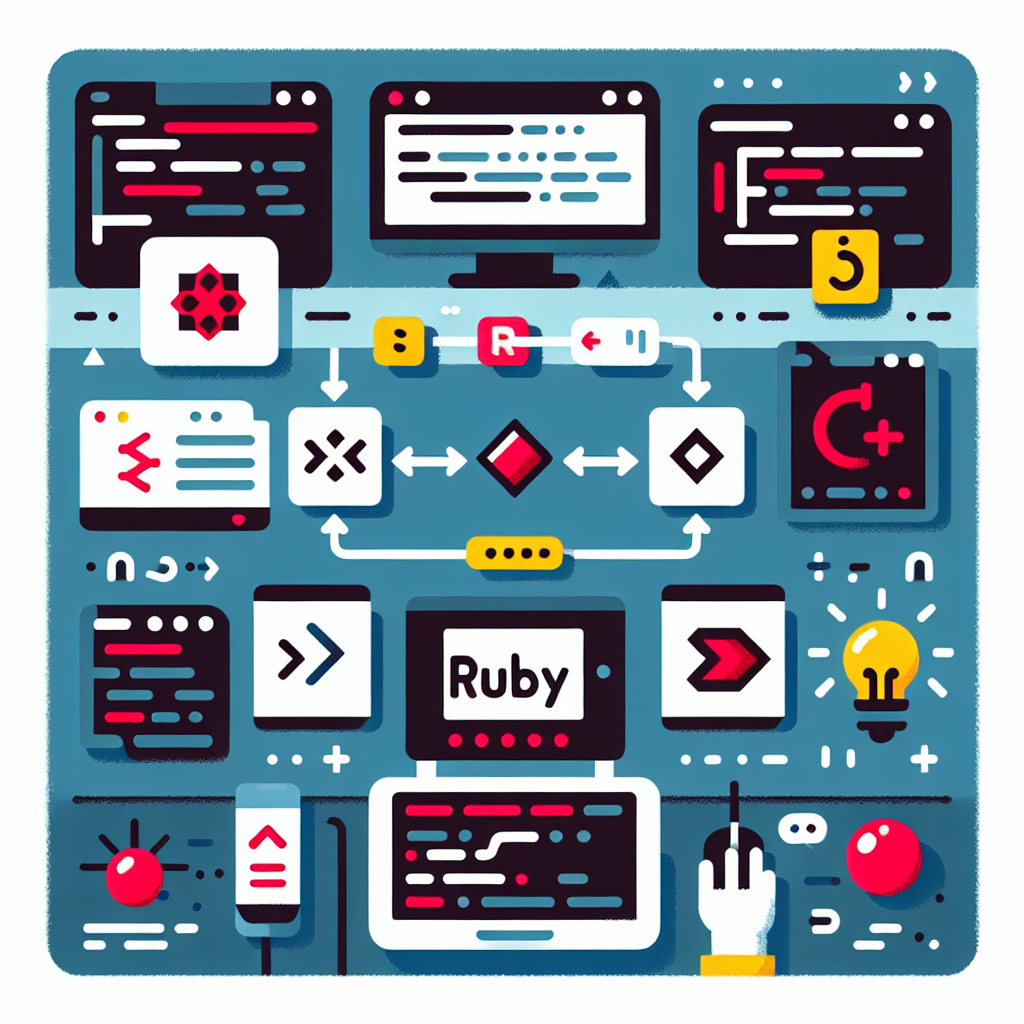Convert C++ to Ruby: Effortless Code Transformation
Effortlessly convert C++ to Ruby with our powerful tool. Boost productivity and streamline your code transformation process. Try it now for seamless results!
Source Code
Converted Code
Output will appear here...
The C++ to Ruby Converter seamlessly transforms your C++ code into Ruby, enhancing development efficiency and cross-language compatibility. Ideal for developers looking to leverage Rubys simplicity without sacrificing the performance of existing C++ applications, this tool streamlines code migration and accelerates project timelines. Boost your programming productivity and maintain versatile codebases effortlessly.

Transform C++ Code to Ruby Effortlessly Link to this section #
If you're looking to convert C++ code into Ruby, our tool is designed to streamline this process, making it seamless and efficient. This tool is perfect for developers transitioning from C++ to Ruby or integrating features across languages.
Key Features Link to this section #
- Automated Conversion: Quickly transform complex C++ syntax into Ruby, handling class structures, loops, and conditionals.
- Syntax Highlighting: Easily distinguish between converted code elements with built-in syntax highlighting.
- Error Detection: Identify potential errors during conversion, ensuring smoother transitions.
Why Convert C++ to Ruby? Link to this section #
- Flexibility: Ruby’s dynamic nature offers flexibility in coding, allowing for rapid prototyping and iterative development.
- Readability: With Ruby’s clean and concise syntax, your code becomes more readable and maintainable.
- Community Support: Leverage Ruby's vast community for libraries and frameworks, enhancing your project’s capabilities.
Example Conversion Link to this section #
Here's a simple illustration of converting a C++ for loop to Ruby:
C++ Code:
for (int i = 0; i < 10; i++) {
cout << i << endl;
}
Converted Ruby Code:
10.times do |i|
puts i
end
Benefits Link to this section #
- Efficiency: Save time with automated conversion, reducing manual effort.
- Accuracy: Minimize human errors during the transition process.
- Ease of Use: Intuitive interface designed for both novice and experienced developers.
Additional Resources Link to this section #
By utilizing this tool, you can effortlessly transition from C++ to Ruby, unlocking new potential for your software projects. Whether you're a seasoned developer or new to Ruby, this tool is an invaluable asset for your development toolkit.
Frequently Asked Questions
What are the main differences between C++ and Ruby?
C++ is a statically-typed, compiled language known for its performance and control over system resources, making it ideal for system-level programming. Ruby, on the other hand, is a dynamically-typed, interpreted language that emphasizes simplicity and productivity, making it popular for web development. Ruby's syntax is more concise and expressive, whereas C++ provides fine-grained control over memory management.
Is it difficult to transition from C++ to Ruby?
Transitioning from C++ to Ruby can be straightforward for programmers familiar with object-oriented programming concepts. However, the biggest adjustments involve adapting to Ruby's dynamic typing, concise syntax, and different memory management model. Ruby's focus on developer happiness and productivity, through features like built-in garbage collection and a rich standard library, can make the transition enjoyable.
How can I use Ruby for tasks typically handled by C++?
Ruby can be used for tasks traditionally handled by C++ by leveraging Ruby's libraries and frameworks for web development, automation, or scripting. For performance-critical tasks, you can integrate C++ with Ruby using tools like Ruby C extension or FFI for executing C++ code from Ruby. Additionally, JRuby allows Ruby to run on the Java Virtual Machine, providing another way to integrate with C++ through Java.